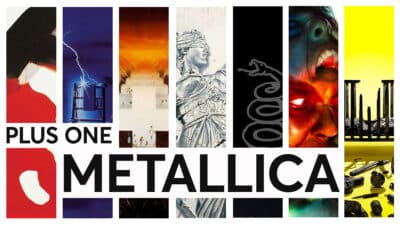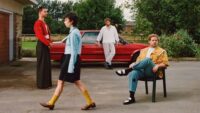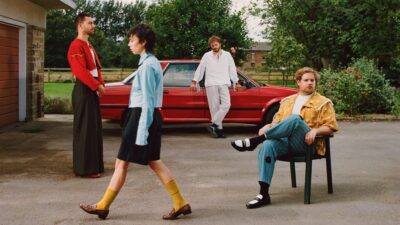Music
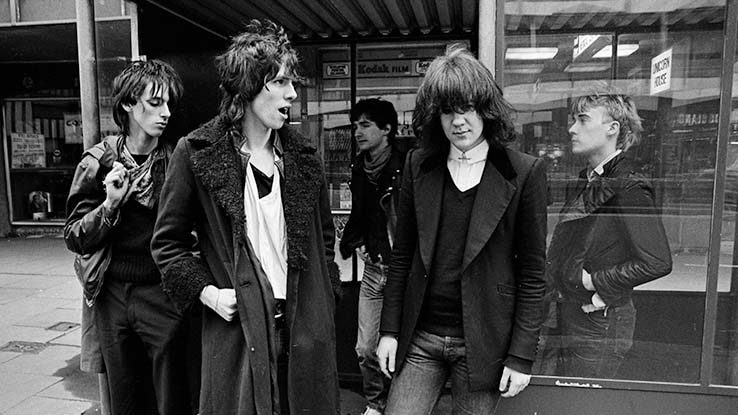
Feature
Lost and found: six bands that slipped through the cracks
We pay tribute to six bands who had it all, except the success they deserved
Music is easy. You just get good at an instrument, write some great songs and everything else falls into place.
If only. Many of us have favourite bands that never got the love and attention we feel they deserved. Really, music is a tough and fickle game that involves people working together and agreeing on things. Brutal.
We wanted to take some time to pay homage to bands that faded into obscurity before they even got out the door. Bands that left unheralded magic gathering dust in shoeboxes beneath beds. Bands that had it all at their feet and found a way to set it on fire, throw it in the bin, set the bin on fire and throw it off a cliff.
Found: The Hawks
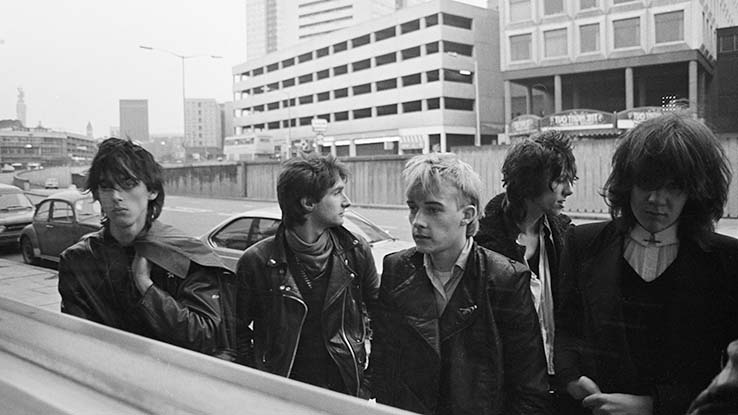
Hard to believe, but there was a Duran Duran before Simon Le Bon. Ever-so-briefly, that early iteration was fronted by a supremely talented Birmingham lad named Stephen Duffy. Duffy jumped ship from the future superstars when his buddies in recently defunct punks TV Eye convinced both him and bassist Simon Colley to set up a new band instead.
That outfit became The Hawks (aka The Subterranean Hawks), a quintet that blended new wave, post punk and rock ‘n’ roll to stunning effect. But despite all their promise and songwriting chops, it just never happened. They self-released one single and split in 1981.
Duffy went on to enjoy success as a solo artist and with The Lilac Time, while guitarist Dave Kusworth formed the Jacobites (with Nikki Sudden), Dogs D’Amour and had a solo career that reunited him with Hawks drummer Dave Twist. But, for 30 years, all that remained of The Hawks’ legacy was a solitary 7”. That all changed when Kusworth finally convinced Duffy to dig through the band’s old recordings. There, he discovered an album’s worth of material, released earlier this year as the raw but undeniably fully formed Obviously 5 Believers.
Believers now sounds like an album out of time, too rocking for the new wavers, too pop for the punks. It fell between every stool it could have and is all the better for it. Sadly, Kusworth died before he ever got to hear the finished project. But as far as legacies go, The Hawks’ one and only record is something to be especially proud of.
Lost: The Wrens
The Wrens were once the best-kept secret in indie rock, turning out left-of-centre, misshapen gems that waited several listens before embedding themselves in your brain. After their brilliant 1997 album Secaucus, their label got bought out and the band departed. Then the major labels came calling, leading The Wrens on with big promises before eventually walking away. All the band came away with in the end was a six-year gap before their third album The Meadowlands appeared in 2003.
The Meadowlands changed everything for The Wrens. Suddenly they were indie blog darlings, back when indie blogs were everything. With everyone in the blogosphere championing the band, they set about recording their fourth album and signed to Sub Pop. And then… nothing. Eighteen years went by. Co-frontman Charles Bissell repeatedly assured fans on social media that the album was done, even inviting some fans to his New Jersey house for listening parties. It was on countless yearly “albums to look forward to in…” lists until, eventually, even their most ardent supporters gave up hope.
As recently as 2019, Bissell was still insisting the album was coming. But earlier this year, the band’s bassist Kevin Whelan announced The Wrens were no more and he was releasing his songs under a new name: Aeon Station. Bissell and Whelan’s relationship dissolved and any chance of the album being heard in its planned state went out the window.
Still, the good news is that Aeon Station’s record exists and sounds perfectly like a grown-up version of Whelan’s corner of The Meadowlands. Bissell promises that his songs will also be released separately, although we may have heard that before.
Found: The Action
Just ask Phil Collins. Ol’ Pip has a major thing for this 60s outfit and even sat in on drums for a 2000 reunion gig. Formed in 1963 in North London, stardom seemed inevitable for The Action, especially once they’d earned the support of Beatles producer George Martin and signed with Parlophone. However, nothing went the way it should, management issues and line-up changes stymying their progress.
Dropped by Parlophone and in search of a new home, The Action abandoned the soulful mod sound of their early recordings and recorded a set of demos in 1968 that erred more towards Byrds-ian psychedelia. The demo failed to land a record deal and the band splintered, but the sessions became the stuff of legend: bootleg recordings shared only between avid collectors.
Eventually, those 1968 songs resurfaced as Rolled Gold, a collection that, for all its rough edges, sounds like one of those great 60s records embedded in every inherited record collection. There’s a heaviness and power to the songs that suggests The Who at their most forceful, while the swirling folk rock emulates – and occasionally outdoes – The Byrds. The phenomenal ‘Something To Say’ and ‘Brain’ remain inexplicably underheard shouldabeen classics.
Lost: The La’s
It might sound strange to suggest that The La’s slipped through the cracks. After all, ‘There She Goes’ remains one of the most instantly recognisable singles of the last 30 years, an omnipresent piece of loveliness that soundtracked a million romcoms. But even that slice of guitar pop brilliance would have gone unheard if Lee Mavers, the band’s infamously fussy creative force, had his way.
Mavers’ talent was matched only by his obsessive attention-to-detail. Recording The La’s self-titled debut album became an arduous task as he sacked big-name producers and bandmates at an alarming rate. Eventually, even Mavers stopped turning up and the label told producer Steve Lillywhite to assemble an album from the takes he had. Mavers was incensed and publicly denounced the album, even as it collected countless glowing reviews.
Mavers’ lieutenant John Power left the band shortly after (going on to form Cast) and The La’s spluttered out. Mavers disappeared, only resurfacing sporadically – even reforming the band from time to time. Eventually, he became so elusive that there was a book written about tracking him down. Musically, he’s been even more absent. Bootlegs abound, but there hasn’t been a single official new La’s song since their debut.
Still, the band’s influence has been enormous. That one perfect album has sunk its hooks into countless bands since, becoming the template for devotees from the Gallagher brothers to The Coral to The Libertines. Mavers, however, has spent the three decades since trying to rerecord it until it sounds like it did in his head. We can only assume it never has.
Found: East Village
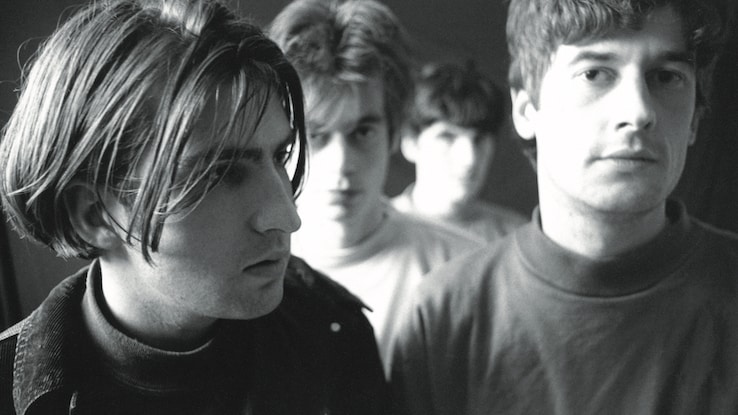
Another band that should have been a sure thing, East Village teetered ever-so-briefly on the brink of success before combusting spectacularly. All they left behind was a tantalising snippet of incredible promise in the shape of one album and a collection of singles. Appropriately enough, one of their early influences were none other than The Action.
After their first label collapsed, brothers Paul and Martin Kelly, guitarist Johnny Wood and drummer Spencer Smith secured funding to finish their debut album Drop Out on their own. Heavenly Records were wise to the band’s jangly genius and signed them immediately, issuing a single, ‘Circles’, in 1991. Support slots with the Manics and Saint Etienne followed and everything seemed perfectly placed. A sold-out show in New Cross was to be their big moment, but the quartet split up right there on stage and that was that.
Heavenly finally released Drop Out two years later but interest in the band was really only spurred on by a 2013 reissue, along with Slumberland Records’ 2020 reissue of the Hot Rod Hotel compilation. It’s not hard to listen to both now and hear how East Village’s Byrds-meets-Beatles chiming pop would have fitted in to ensuing scenes, especially the smarter, more sensitive end of Creation Records and Britpop.
The last few years have seen a whole new breed of guitar pop bands: from Australia (Rolling Blackouts Coastal Fever) to Canada (Ducks Ltd.), from the higher reaches of the charts (The Lathums) to DIY bedroom pop (The Reds, Pinks & Purples). All owe East Village a debt, even if they don’t know it yet.
Lost: The Reverbs
Back in 2020, Captured Tracks released Strum & Thrum, a compilation that blew thick layers of dust and mothballs off so many lost bands. It functioned both as a deep dive into a lost scene inspired by R.E.M.’s early records and as a belated American riposte to NME’s famous C86 collection.
Across two discs, Strum & Thrum uncovered 80s guitar pop bands that even dedicated devotees had either overlooked or forgotten, from One Plus Two to The Outnumbered. Fittingly, it kicked off with The Reverbs, a band whose sole 1987 release only seems to exist in secondhand record stores in Japan.
The Reverbs were John Brabeck and Ric Menck. Menck is something of a hero in certain circles, going on to drum in The Springfields, Choo Choo Train and Velvet Crush and in backing bands for Matthew Sweet, Aimee Mann and The Hawks’ Stephen Duffy. And that’s not Menck’s only connection to other bands on this list. It was his label Reaction Recordings that released The Action’s Rolled Gold back in 2002.
The Happy Forest was the one and only time The Reverbs were captured on record and it’s a frustrating appetite-whetter for something that never came. Maybe their unassuming melodies were too unassuming, but the infectious ‘Trusted Woods’ offers a glimpse of the brilliance Menck would achieve with Velvet Crush.





